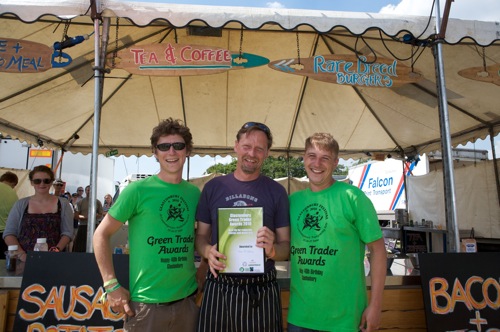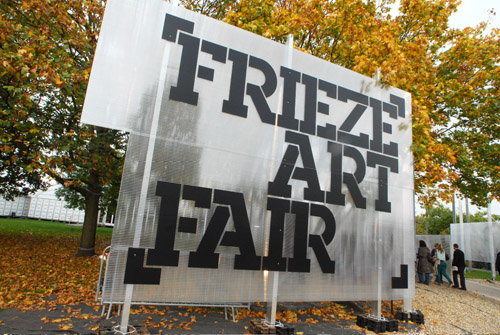Using waste vegetable biodiesel at major events works!
In the summer of 2011, both Reading and Leeds festivals endeavoured to procure biodiesel for fuelling some of their generators. Both were employing energy contractors, whom they have previously worked with, to supply a target percentage of biodiesel in some generators at the festivals. These contractors were contractually bound to provide data on the actual fuel consumption after both Reading and Leeds. However, Leeds’ contractor had more experience with providing biodiesel and had an established supply network.
Leeds managed to procure 18.52% of their energy from biodiesel in 2010, and managed to up this supply to 24.53% by 2011. This brought Leeds very close to meeting its 25.95% biodiesel target for 2011.
In 2010, Reading managed 12.51% biodiesel. This proportion then dropped to just 8.53% in 2011, despite the target being raised that year to 20.85% of the overall energy supply. Then in 2012 they brought this figure up to 18.24%, much closer to their initial target.
A variety of factors influenced the two different contractors in their ability to supply to required amount of biodiesel to each festival. This included a limited biodiesel supply in certain parts of the country, as well as a lack of suppliers. Biodiesel is also subject to price fluctuations. Complexities and important points to note in such a process include: how prepared contractors are in terms of equipment and sourcing to deliver on specific targets such as alternative energy supplies, how accurate power demand estimates are compared to actual demand, communication and feedback between the festival and the contractor.
Despite some teething problems with supplies, commitment to Waste Vegetable Oil biodiesel to subsidise the energy supply at such well known, large capacity festival is commendable, and will hopefully continue to grow. Early reports following the summer’s breakdown confirm that Reading and Leeds Festivals both managed to meet biodiesel substitution targets for the 2013 festivals. Reading’s fuel consumption included 21,600 litres of biodiesel and Leeds worked with 14,400 litres of biodiesel in the summer of 2013. The use of some solar energy at the festivals almost came to fruition in 2013, but in the end this was not deemed financially viable and wholly suitable. It can hopefully be pursued next year.
One of the main energy efficiency improvements of 2013 is that 50 of Reading and Leeds festivals’ generators on site were being monitored. Energy readings are being collated to establish just how much energy was used onsite. The figure for peak loads can be compared with the generator original power specs. This will give an indication of whether or not the generator was oversized for its purpose. Having the right capacity generator saves fuel and reduces the chance of damaging or reducing the device’s lifespan. This is one of the main ways to increase energy efficiency at festivals, making it an extremely important factor to consider.
Gas and cost saving techniques for catering aren’t just hot air.
Green Street Catering came to dramatically increase their energy efficiency when they realised just how much money was being lost due to the inefficient use of fuels in their service at festivals and outdoor events in the UK. Tim Spence, of Green Street Catering, realised that only four or five hours of the day required all the gas cooking facilities to be on, out of the eighteen hour trading day. Staff were re-trained to be vigilant in only igniting new wok burners when other burners were at full capacity, and to not have them all running all throughout the day as they had done previously. This saved an estimated £6,000 in one summer, which is equal to the cost of a pitch for a food trader at a large festival. This new approach, including setting new standards as well as retraining staff, more than halved gas consumption and costs at Green Street Catering.
Green Street Catering were even winners of an award for best idea for reducing energy and water use, as part of the Green Traders Award 2010 at Glastonbury run by Greenpeace, with the help of NCASS (the Nationwide Caterers Association). Green Street Catering are a prime example of just how important energy efficiency and staff engagement and participation are in improving sustainability in energy provision at festivals and outdoor events.
International art fair switches to ‘diesel frieze zone’ using WVO biodeisel
Frieze Art Fair took the icy plunge into the depths of energy emissions reduction in 2009, but hasn’t looked back since warming to waste vegetable oil run generators.
The provision of a £20,000 fund from the Greater London Authority allowed Frieze Art Fair, the second largest art fair in the world after Basel, to steer away from using diesel as the main fuel supply for the fair.
This grant allowed for the establishment of an industry steering group to carry out industry consultation for the development of a series of targeted interventions to reduce Frieze’s carbon emissions. An ambitious 60% carbon emissions reduction target for the creative industries was set, reflecting the same overall target for reduction of London’s emissions for 2025.
The largest environmental impacts of Frieze Art Fair were identified through carbon audits from 2007 and 2009. The realisation that diesel generators were one of the biggest contributors to the Fair’s carbon footprint was the impetus to find an alternative way to power this event that has attracted over 60,000 visitors in recent years. It was important to work with contractors to improve the environmental performance of the Fair in a way that was practical and fitted into their current working practices. The use of biodiesel generators to power the event was first piloted in 2009, which progressed on the event using exclusively WVO biodiesel generators in 2010. This immediately reduced the Fair’s associated carbon emissions by 60%. They generate the heat and electricity, and 300W halogen floodlights have been replaced by 70W metal halides to increase energy efficiency. Working closely with their site management team, 20-20 Events, helped in the development of the Fair’s environmental infrastructure, improved the data collection process, and facilitate partnerships with contractors and stakeholders. This change in fuel, along with other measures, have resulted in the carbon footprint per visitor in 2010 being recorded as only 0.25kg CO2e, down 90% on previous years.



